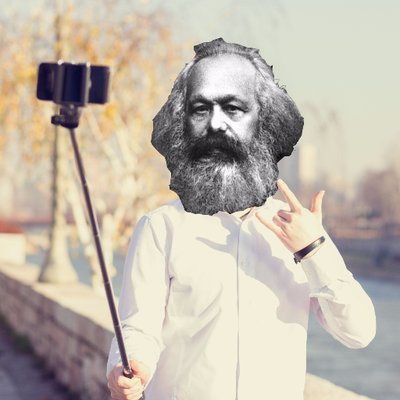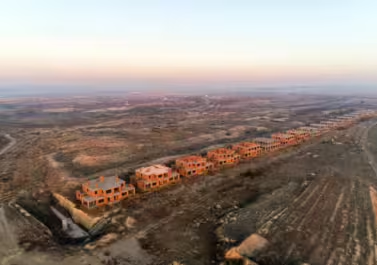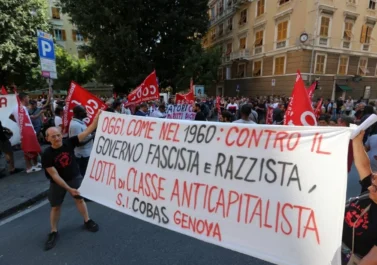
In November, our reading group discussed Cyril Smith’s Marx at the Millennium, digital editions of which can be found on Libcom and the MIA. The meeting, focused primarily on the third and fourth chapters, began with an introduction by the comrade who suggested the book covering why they felt it was significant and was followed by a discussion that continued over email. What follows is a summary of what we thought. The reading group will continue in 2022, get in touch if you want to participate.
Introduction:
When I read this book as a teenager it had a massive impact on me. I would constantly reread parts of it to try and wrap my head around what it meant, digging up the sources of the quotes from Marx. I hope that, even if you’re not as impressed with book as I was, it still inspires you to go “back to basics”. You tend to find that this sort of thing happens in times of revolutionary lulls: Marx did it in the 1850s, Lenin in 1914, Cyril Smith after the breakup of the WRP, and I think many of us are trying to do something similar.
As communists, we’re all aware that the way we’re forced to live is bullshit, but the question is exactly how and why? Smith makes the point that only humans can live inhumanly: in a way that runs contrary to our own interests. We can do this precisely because we are free, not in an individualistic sense but a social one. Human beings are free to create whatever social order we want – even if it kills us. When we work shite jobs making widgets for pennies, even though it doesn’t feel like it, we’re engaging in exactly the activity that separates us from other animals. Smith uses a metaphor from biology, that of an integument: a wrapping, normally of skin, that goes around and conceal whatever is underneath like flesh or bone. The content of production, human beings exercising their creative powers socially to fulfil their needs and the needs of others, becomes trapped in the inhuman form of wage labour. Instead of flowing from our own desires and needs, our mode of production appears to be something completely alien that controls and dominates us. There are so many books on Marx’s Capital that get it wrong right from the beginning by saying that it’s a book about capitalism when it isn’t. It’s a book about communism: about the way in which the free association of producers is trapped within the alien world of capital. Right in the first chapter we see how human qualities become shells for objects that control us. The natural body of a commodity becomes the carrier of its value – what it really is in capitalism, the real concrete labour of human beings becomes a wrapper for abstract value-producing labour, social labour conceals individual, atomised, private labour. Marx himself had already realised this core fact by 1844 in his “Comments on James Mill” which Smith quotes from and is worth reading in full. The following quote encapsulates this well with regards to money:
“The essence of money is not, in the first place, that property is alienated in it, but that the mediating activity or movement, the human, social act by which man’s products mutually complement one another, is estranged from man and becomes the attribute of money, a material thing outside man. Since man alienates this mediating activity itself, he is active here only as a man who has lost himself and is dehumanised; the relation itself between things, man’s operation with them, becomes the operation of an entity outside man and above man. Owing to this alien mediator – instead of man himself being the mediator for man – man regards his will, his activity and his relation to other men as a power independent of him and them. His slavery, therefore, reaches its peak. It is clear that this mediator now becomes a real God, for the mediator is the real power over what it mediates to me. Its cult becomes an end in itself […] Hence man becomes the poorer as man, i.e., separated from this mediator, the richer this mediator becomes.”
We’re all aware of the Stalinist caricature of historical materialism – that “social being determines social consciousness” and that human beings have no control over the movement of history. Yeah, that’s exactly the problem! Why isn’t the human race able to consciously control its own history for its own ends? The domination of the human race by capital is what produces this inverted view, and it’s what the communist movement has to strive to overcome. The question of revolution is often treated as though it were simply a matter of immediate interests: workers and capitalists have opposing interests on whether to raise or lower wages – a struggle ensues that hopefully ends with workers seizing power. But this view ignores the content of this fight. So long as the fight is over wages then we haven’t left the realm of bourgeois society at all, we’re just buyers and sellers haggling over prices. It’s rather that this way of living has produced a group of people who have no stake in the current system, and whose interactions with it prove to a greater and greater extent that it has no rational basis and can be overcome. It’s only by the class becoming conscious of itself as a class, of its separate interests from society, and by exercising its power consciously can the revolution happen.
You sometimes hear complaints that Marx never describes the future communist society. Well, part of the point is that this society is one that conforms to whatever the needs of human society are at the time, and what it can achieve. No longer would we be trapped in an insane set of social relations. This conception comes out clearly in above “Comments” and in the first chapter of Capital, written decades later. You will notice that the society described below is much simpler than the one we really live in. You wouldn’t need to waste your time trudging through Capital trying to understand the division of labour if you lived there!
“Let us suppose that we had carried out production as human beings. Each of us would have in two ways affirmed himself and the other person. 1) In my production I would have objectified my individuality, its specific character, and therefore enjoyed not only an individual manifestation of my life during the activity, but also when looking at the object I would have the individual pleasure of knowing my personality to be objective, visible to the senses and hence a power beyond all doubt. 2) In your enjoyment or use of my product I would have the direct enjoyment both of being conscious of having satisfied a human need by my work, that is, of having objectified man’s essential nature, and of having thus created an object corresponding to the need of another man’s essential nature. 3) I would have been for you the mediator between you and the species, and therefore would become recognised and felt by you yourself as a completion of your own essential nature and as a necessary part of yourself, and consequently would know myself to be confirmed both in your thought and your love. 4) In the individual expression of my life I would have directly created your expression of your life, and therefore in my individual activity I would have directly confirmed and realised my true nature, my human nature, my communal nature.”
“Let us now picture to ourselves, by way of change, a community of free individuals, carrying on their work with the means of production in common, in which the labour power of all the different individuals is consciously applied as the combined labour power of the community. All the characteristics of Robinson’s labour are here repeated, but with this difference, that they are social, instead of individual. Everything produced by him was exclusively the result of his own personal labour, and therefore simply an object of use for himself. The total product of our community is a social product. One portion serves as fresh means of production and remains social. But another portion is consumed by the members as means of subsistence. A distribution of this portion amongst them is consequently necessary. The mode of this distribution will vary with the productive organisation of the community, and the degree of historical development attained by the producers. We will assume, but merely for the sake of a parallel with the production of commodities, that the share of each individual producer in the means of subsistence is determined by his labour time. Labour time would, in that case, play a double part. Its apportionment in accordance with a definite social plan maintains the proper proportion between the different kinds of work to be done and the various wants of the community. On the other hand, it also serves as a measure of the portion of the common labour borne by each individual, and of his share in the part of the total product destined for individual consumption. The social relations of the individual producers, with regard both to their labour and to its products, are in this case perfectly simple and intelligible, and that with regard not only to production but also to distribution.”
The fourth chapter tackles the question of how we’re meant to understand the world we live in. I have already mentioned how Marx’s Capital is really a book about communism – it is also a critique of the old political economists’ way of thinking. These were scientists who attempted to describe capitalism in the same way a biologist would investigate a tree. They wanted to show the underlying laws that would explain why the world would have to be organised this way. But they ran into contradictions and antagonisms they couldn’t explain, reaching their peak with Ricardo who had to take the conflict between profit, wages, and rent as a given. They could never ask the question of whether the world had to be this way, or why human beings were having difficulties understanding what they themselves were doing, and they treated past modes of production as though they were bizarre approximations of the capitalist world. Nowadays economists don’t even bother with explanations: they merely track how changing one contextless number affects another or gather tricks for capitalists to use in swindling themselves and us. Marx treated political economy in the same way he treated religion. He wasn’t merely showing this or that theory to be false and replacing it with another. He demonstrated that the insanity of the theory was directly caused by the insanity of the world that produced it; that capitalist society looking at itself would inevitably find it impossible to explain itself. Marx was a revolutionary, and his “theoretical” work was all about laying bare the necessity of working-class revolution.
Discussion:
Many people present at the meeting had known Cyril Smith personally from their days at the WRP and were able to provide context for how its break-up had influenced him. The cause of the disintegration was the revelation that the party’s leader Gerry Healy had been sexually abusing women in the party for years. There was a schism, and in the aftermath of Healy’s removal the organisation was launched into an existential crisis. Amidst material problems, legal challenges, the potential loss of things the party had built up for decades like its printing press; Smith and the other members were left reeling from the collapse of a movement they had spent decades fighting for. In the days when Healy was leader, he had suppressed and mocked Smith whenever he had tried to critically think about things which the Trotskyist movement took for granted, but now he was free to follow through on his thoughts. He began trying to work out how a supposedly communist organisation had reproduced all the shit of the old society inside itself. People in the meeting confessed that at the time they hadn’t been ready to hear these kinds of ideas, many of which ended up forming the basis for the book, and so ignored him to focus on the more immediate issues.
On the whole, people had enjoyed the book and its way of presenting the “basis” of the communist movement, but there were caveats. Most felt that centring the book on the notion of “humanism” in the way that Smith defined it was simplistic, although it might have been justified by how short it was and how much it wanted to cover. Some comrades took this further: they felt that Smith was wrong to identify social cooperation, the distribution of the products of labour, creative planning, self-creation, etc. as characteristics with a necessarily emancipatory character. If, once human beings are able to produce a surplus while still being relatively precarious in nature, they create religion, enslavement, and human sacrifice, is this still self-creation? The book was too general and needed to explain more specifically how human labour ends up becoming private property, and how the concepts of social cooperation and so on make themselves in the capitalist mode of production – the working class can’t fight for concepts alone. In response, some comrades felt that while it was brief the book did point towards a lot of these things. Knowledge about human prehistory shows how human activity becomes trapped in these forms but what’s more important is why, and the impact that it has on us. There was also discussion of how Smith presented the history of Marxism in the second chapter. Some felt that it was too straightforward a narrative of decline from Marx onwards and ignored currents and organisations which had a different outlook to the Bolsheviks, such as the Dutch-German and Italian Communist Lefts, and others felt that it his characterisation of some like Lenin and Engels were also inaccurate.



